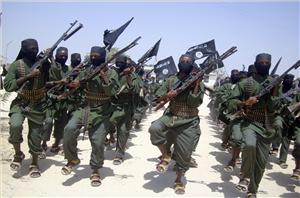By: Ashley Repp
News Desk Reporter, Africa
KAMPALA, Uganda
Ugandan military forces have reportedly foiled an attack planned by al-Shabab, after uncovering a terrorist cell in the city of Kampala. An imminent attack by the Islamic militant group has been feared in recent days after the death of the leader. Less than two weeks ago, the United States carried out a mission that targeted and killed the al-Shabab leader, along with two other companions. This attack left the militant group calling for revenge and retribution for the attack on their organization and the death of group members. In the wake of the call for revenge, nearby states, including Kenya, Somalia, and Uganda, have remained on high alert, concerned that a terror attack could be likely.
The target of the attack plan foiled by the Ugandan military is unknown, as well as the full scope of the plan. The Ugandan government has urged citizens to heed the shelter in place warning, issued in the days following the death of the al-Shabab leader, and refrain from leaving the house at night. The United States Embassy has echoed this warning, cautioning US citizens in Uganda to exercise caution during this time of heightened tensions in the region. Busy areas and locations that accommodated high volumes of people on a daily basis may be targets, the US Embassy warns. Such locations may include malls, local transit stations, airports, and movie theaters.
Uganda is not unfamiliar with al-Shabab to say the very least. The nation has been involved with peace keeping initiatives that have required Ugandan troops having a presence in Somalia. Indeed, al-Shabab carried out an attack on a sports bar in Uganda during the 2010 World Cup, killing many. Al-Shabab has warned that all of those who maintain a presence in Somalia may be targets for violence; Uganda and Ugandans are on the list. Retaliatory measures in the wake of last week’s events are requiring that the Ugandan government exercise vigilance to protect its people and deter attacks directed at the country or citizens.
While a retaliatory act seems likely, Uganda may have enough time to sufficiently brace itself and further explore any terror plot leads. This is the best time to take advantage of any structural weakness of al-Shabab, as it recovers from internal tragedy and begins to implement new leadership. Though al-Shabab may aim to carry out an attack in the coming days, it may be operationally incapable of carrying out an organized plan as the new leader attempts to pick up where the former leadership ended.
For more information please visit:
All Africa- Uganda: Government foils ‘imminent’al-Shabab terror plot- 13 Sept 2014
All Africa- Uganda: Kampala Foils Terrorist Attack, U.S. Citizens Urged to take caution– 13 Sept 2014
All Africa- Uganda: New Al-Shabab boss plans to hit Uganda- Gen Katumba– 13 Sept 2014
Aljazeer- Uganda foils ‘terrorist’ attack – 13 Sept 2014




